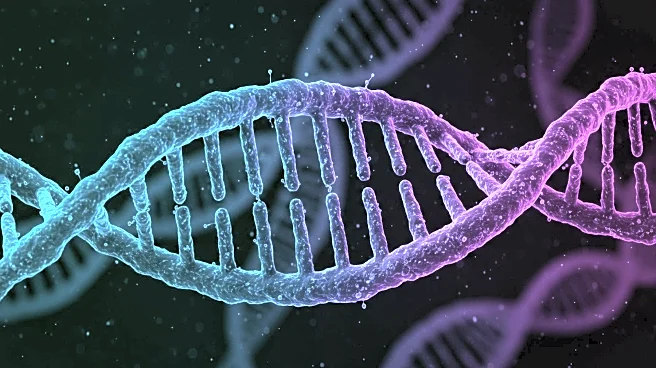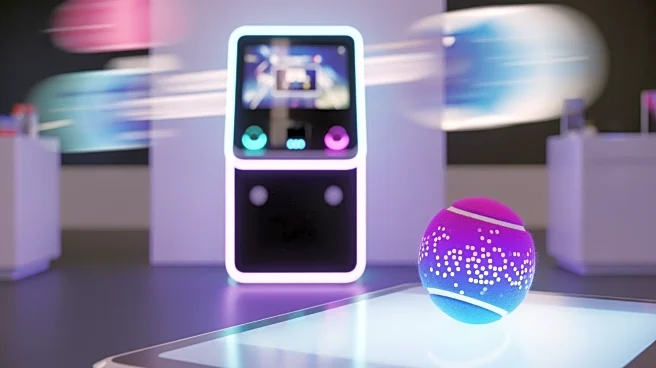What's Happening?
Researchers at the University of Zurich have developed AI-designed DNA repair templates to improve the precision of gene editing using CRISPR technology. The study, published in Nature Biotechnology, highlights the use of an AI tool named 'Pythia' to predict how cells repair DNA after being cut by CRISPR/Cas9. This advancement aims to address challenges in precise gene editing by providing more accurate modeling of human diseases and next-generation gene therapies. The AI-designed templates were tested in human cell cultures and demonstrated precise integrations at multiple loci, with further validation in organisms like Xenopus and mice.
Why It's Important?
The development of AI-designed DNA repair templates represents a significant advancement in biotechnology and gene therapy. By improving the precision of gene editing, this technology has the potential to enhance the safety and reliability of genetic interventions, which is crucial for clinical applications. This could lead to more effective treatments for genetic disorders and diseases, benefiting patients and healthcare providers. Additionally, the ability to accurately model human diseases opens new avenues for research and therapeutic development, potentially transforming the landscape of personalized medicine.
What's Next?
The researchers plan to continue exploring the applications of AI-designed DNA repair templates in various organisms and cell types. Future studies may focus on expanding the use of this technology in clinical settings, particularly for gene therapies targeting specific genetic disorders. The integration of AI in gene editing processes could also lead to the development of new tools and methodologies for precision medicine, further enhancing the capabilities of genetic research and treatment.
Beyond the Headlines
The ethical implications of AI-driven gene editing are significant, as this technology could lead to debates over genetic modifications and their impact on human health and society. Ensuring the responsible use of AI in biotechnology will be crucial to address concerns related to genetic privacy, consent, and potential misuse.









